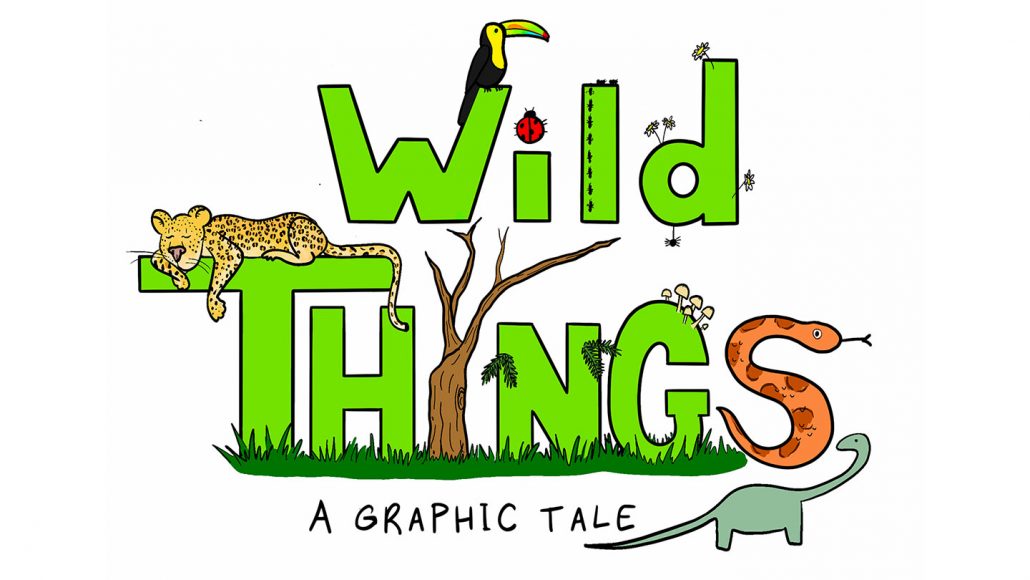behavior: The way something, often a person or other organism, acts towards others, or conducts itself.
colleague: Someone who works with another; a co-worker or team member.
digit: A structure, like a finger or toe, at the end of the limbs of many vertebrates.
evolutionary biologist: Someone who studies the adaptive processes that have led to the diversity of life on Earth. These scientists can study many different subjects, including the microbiology and genetics of living organisms, how species change to adapt, and the fossil record (to assess how various ancient species are related to each other and to modern-day relatives).
footage: (in movies and videos) A term for the uncut or unprocessed motion pictures or video imagery taken by a camera. It takes its name from the fact that it took several feet of film to capture a few seconds of motion-picture photography.
immune system: The collection of cells and their responses that help the body fight off infections and deal with foreign substances that may provoke allergies.
journal: (in science) A publication in which scientists share their research findings with experts (and sometimes even the public). Some journals publish papers from all fields of science, technology, engineering and math, while others are specific to a single subject. Peer-reviewed journals are the gold standard: They send all submitted articles to outside experts to be read and critiqued. The goal, here, is to prevent the publication of mistakes, fraud or work that is not novel or convincingly demonstrated.
lemur: Any of many primate species that tends to have a cat-shaped body and usually a long tail. They evolved in Africa long ago, then migrated to what is now Madagascar, before this island became separated from the east coast of Africa. Today, all wild lemurs (some 33 species of them) live only on the island of Madagascar.
literature: The books, studies and other writings published on a particular subject. Scientific literature usually refers to published papers or meeting abstracts describing new research findings or the reviews of multiple papers on a topic within some field.
macaque: A monkey with cheek pouches and a short tail that lives mainly in the forest.
Madagascar: This island nation sits in the Indian Ocean, just east of the African nation of Mozambique. The world’s fourth largest island, Madagascar is home to many unique animals that have evolved in relative isolation. These include a number of primates, such as lemurs, chameleons of all sizes, birds and lots of butterflies.
mucus: A slimy substance produced in the lungs, nose, digestive system and other parts of the body to protect against infection. Mucus is made mainly of water but also includes salt and proteins such as mucins. Some animals use mucus for other purposes, such as to move across the ground or to defend themselves against predators.
nasal: Having to do with the nose.
nocturnal: An adjective for something that is done, occurring or active at night.
orangutan: One of the great apes (which also include gorillas, chimpanzees and bonobos), this red-haired tree dweller shares 97 percent of its genes in common with humans. They can live for 60 years, with adults weighing 48 to 130 kilograms (105 to 286 pounds) depending on gender, age and health, with males being bigger. They have opposable thumbs (as humans do) and also opposable big toes, which aids in their gripping.
primate: The order of mammals that includes humans, apes, monkeys and related animals (such as tarsiers, the Daubentonia and other lemurs).
social: (adj.) Relating to gatherings of people; a term for animals (or people) that prefer to exist in groups. (noun) A gathering of people, for instance those who belong to a club or other organization, for the purpose of enjoying each other’s company.
species: A group of similar organisms capable of producing offspring that can survive and reproduce.
stigma: A disgrace, source of shame or a stain on one’s reputation — often not justifiably — due to something that one did, experienced or represents to others.
tool: An object that a person or other animal makes or obtains and then uses to carry out some purpose such as reaching food, defending itself or grooming.
zoology: The study of animals and their habitats. Scientists who undertake this work are known as zoologists.

